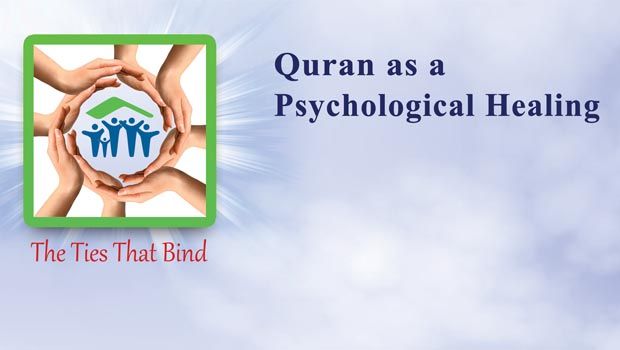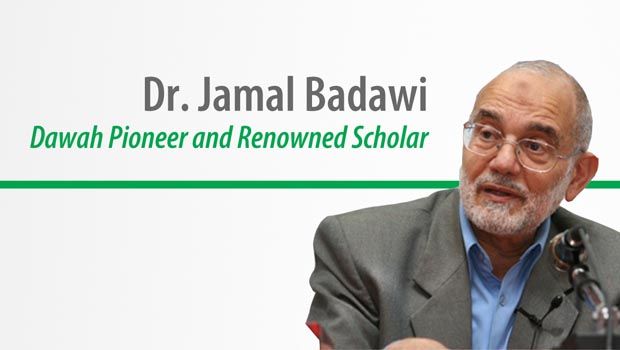As he gathered his thoughts, he wondered if he could ever recover from his sense of loss. The death of a close friend so unexpectedly had left him feeling so devastated that he could not muster up the strength to stand up straight. This was his friend who had been there for him, caring and supportive, through graduation, through the death of his father, through his marriage and the birth of his beloved child. And now this wonderful friend had left this world. How could he get through all of the pain and become whole again? He somehow rose to his feet and began walking down the hallway to his study. Books were something he turned to when he needed some kind of inspiration or solace. This was one of those times. He searched the shelves until his eyes fell on the Holy Quran, a copy his friend had given him when his father had passed. It served as a comfort then and must serve as one now. He picked it up and sank into his armchair, allowing the tears to flow even before he opened to the first chapter, “The Opening.” He trusted that the Quran would open his heart, sooth his emotions, and bring a light unto his mind. He would sit and read and reflect, soaking in all the wisdom the Lord from on high had to offer that would heal his broken heart.
When an individual is undergoing a harsh trial, one suggestion psychologists give to him/her is to focus on gratitude. This does not mean dismissing or denying the feelings of sadness, anger, etc., but to experience gratitude as shelter in a violent storm.
As humans, we will all endure difficulties in life for this is the nature of the life of this world. Allah (SWT) has created us to test us, and some of those tests that we encounter may be extremely painful. There are many resources for us to turn to in these times of sadness, loss, hardship, and struggle such as family members, friends, imams, therapists, support groups, etc. But one essential resource is the Holy Quran itself. Allah (SWT) says about the Quran, “And We send down of the Quran that which is a healing and a mercy to those who believe…” (Surah Al-Israa, 17:82). He (SWT) describes the Quran as a healing, something that soothes hearts and souls. We must believe in its ability to heal us when we are going through trials, particularly the psychological anguish that comes along with these tribulations. The sadness, anger, guilt, regret, and other negative emotions that arise within us can be soothed by the recitation of, and reflection on, the words of Allah (SWT).
When an individual is undergoing a harsh trial, one suggestion psychologists give to him/her is to focus on gratitude. This does not mean dismissing or denying the feelings of sadness, anger, etc., but to experience gratitude as shelter in a violent storm. The storm is still there and the wind is howling, but gratitude provides a safe haven, a place to momentarily rest and breathe deeply and endure with patience. The Quran contains numerous passages on gratitude as Allah (SWT) reminds the believers of what they have been given from Him: “And whatever of blessings and good things you have, it is from Allah” (Surah al-Nahl, 16:53). This verse, among many, reminds us of how blessed we are even in the darkest of times. It is a reminder of the One who has given us all that we have, a reminder to thank Him and turn to Him for solace.
Another characteristic we learn from the Quran that can help heal hurting hearts is sabr, which is patience and perseverance. When one is going through a trial, the practice of sabr ensures that the one who is suffering is able to endure the trial and remain firm throughout. Sabr is a beautiful quality that Allah (SWT) describes in the Quran as a feature of the people who earn Jannah. If one struggles through a hardship and endures patiently, he/she will be rewarded greatly. Even knowing this fact brings comfort to the heart in harsh times. The promise of Allah (SWT) is true, and trusting in, and depending on that promise is often the strength that pushes a person forward despite being in distress. The Quran says, “Be sure we shall test you with something of fear and hunger, some loss in goods or lives or the fruits [of your toil], but give good news to those with sabr who, when afflicted with calamity, say, ‘Truly, to Allah we belong and truly, to Him we shall return.’ Those are the ones upon whom are blessings from their Lord, and mercy. And it is they who are the guided ones” (Surah al-Baqarah, 2:157). This promise of the blessings and mercy of Allah (SWT) is a beautiful one that can be remembered in challenging times for support and consolation. The Messenger of Allah (pbuh) said, “Strange is the affair of the believer; verily, all his affairs are good for him. If something pleasing befalls him, he thanks [Allah] and it becomes better for him. And if something harmful befalls him, he is patient and it becomes better for him. And this is only for the believer.”
Recitation and reflection on the words of Allah bring solace and healing. Gratitude is a safe haven because even in difficult times there are moments in which to focus on the many blessings to be grateful for. Sabr (patience and perseverance) is a virtue to practice at all times but especially when we are struggling with the tests of this life because the promise of Allah (SWT) is true: that the one who practices sabr in hard times surely deserves Paradise. The very thought of Paradise can be a solace for us in difficulty. We can close our eyes, imagine a place in Jannah that we are longing for, a place of complete ease and comfort and joy, and strive to earn that reward. Allah (SWT) tells us, “Now no person knows what delights of the eye await them [in the life to come] – as a reward for all that they did” (Surah as-Sajdah, 32:17). In harsh circumstances, if we remind ourselves of this beautiful place, it will provide a comfort to our hearts that will carry us through the pain towards a place of contentment.






